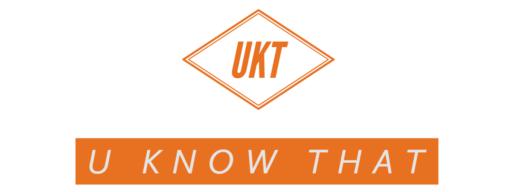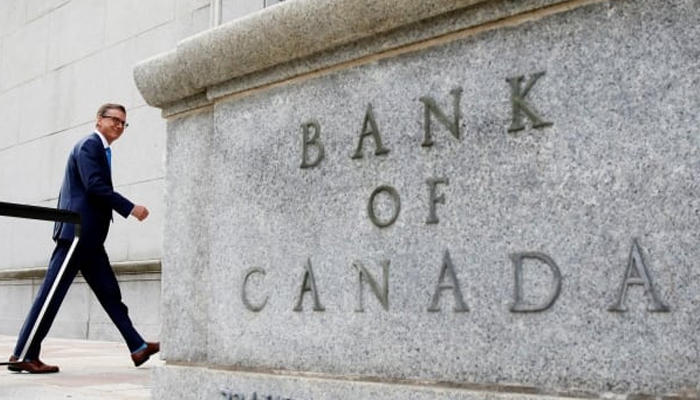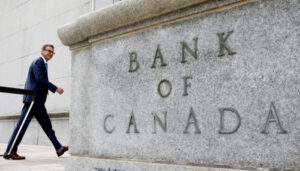How the Bank of Canada’s Interest Rate Hike Impacts Your Finances
The Bank of Canada recently announced an interest rate hike, and it’s making waves across the financial world. But what does this mean for you and your finances? Whether you’re a homeowner with a mortgage, a business owner with loans, or simply someone with savings in the bank, the interest rate hike is likely to have an impact on your financial situation. Understanding how the interest rate works and how it affects the economy is essential for making informed decisions about your money. In this article, we’ll dive into the details of the Bank of Canada’s interest rate hike and explore how it could impact your finances. From higher borrowing costs to changes in the housing market, we’ll break down what you need to know to stay ahead of the game and make smart financial choices. So buckle up and get ready to learn how this interest rate hike could affect you.
Understanding interest rates and their impact on finances
To understand how the Bank of Canada’s interest rate hike will impact your finances, it’s important to first understand what interest rates are and how they work. Interest rates are the cost of borrowing money and the return on lending money. When the Bank of Canada raises the interest rate, it makes it more expensive to borrow money and more attractive to save money. This is done to control inflation and stabilize the economy.
The Bank of Canada sets the interest rate eight times a year, based on the state of the economy. When the economy is doing well and inflation is high, the Bank of Canada will raise interest rates to slow down spending and keep prices from rising too quickly. On the other hand, when the economy is weak, the Bank of Canada will lower interest rates to encourage spending and stimulate economic growth.
Interest rates affect almost all aspects of the economy, from mortgages and loans to credit cards and savings accounts. When interest rates go up, borrowing money becomes more expensive and saving money becomes more attractive. This can have a significant impact on your finances.
Bank of Canada’s role in setting interest rates
The Bank of Canada is responsible for setting the target for the overnight rate, which is the interest rate at which banks lend money to each other. This rate is the basis for the interest rates that banks charge to their customers for mortgages, loans, and lines of credit. When the Bank of Canada raises the overnight rate, it puts upward pressure on all interest rates in the economy.
The Bank of Canada uses a range of economic indicators to determine the state of the economy and whether or not to raise or lower interest rates. These indicators include inflation, unemployment, and economic growth, among others. The Bank of Canada also considers global economic conditions and geopolitical events that could impact the Canadian economy.
Reasons behind the interest rate hike
The Bank of Canada recently raised the interest rate from 0.25% to 0.5%, citing several reasons for the increase. One of the main reasons was the strength of the Canadian economy, which has been growing faster than expected. The Bank of Canada also noted that inflation has been above its target of 2% for several months, which suggests that the economy is overheating.
Another reason for the interest rate hike was the need to keep the housing market in check. The housing market has been booming in many parts of Canada, with home prices rising rapidly in some areas. The Bank of Canada is concerned that if interest rates remain too low, it could lead to a housing bubble and a subsequent crash.
Finally, the Bank of Canada is looking to prevent an increase in household debt. Canadians have been borrowing at record levels in recent years, and the Bank of Canada wants to prevent this trend from continuing. By raising interest rates, the Bank of Canada hopes to discourage borrowing and encourage saving.
How the interest rate hike affects mortgages and loans
One of the most significant impacts of the Bank of Canada’s interest rate hike is on mortgages and loans. When interest rates go up, it becomes more expensive to borrow money, which means that mortgage and loan payments will increase. Homeowners with variable rate mortgages will see an immediate increase in their monthly payments, while those with fixed-rate mortgages will not be affected until their mortgage comes up for renewal.
The impact on loans will depend on the type of loan and the terms of the loan agreement. For example, a variable rate personal loan will be affected by the interest rate hike, while a fixed rate car loan will not be affected until the loan comes up for renewal. It’s important to review the terms of your loan agreement to understand how the interest rate hike will impact your payments.
Impact on credit card and line of credit interest rates
Another area that will be impacted by the interest rate hike is credit card and line of credit interest rates. When interest rates go up, credit card and line of credit interest rates will also go up. This means that it will be more expensive to carry a balance on your credit card or to use your line of credit.
It’s important to review the terms of your credit card and line of credit agreements to understand how the interest rate hike will impact your payments. If you are carrying a balance on your credit card, it may be a good time to consider paying it off or transferring it to a lower interest rate option.
Effect on savings accounts and investments
While the interest rate hike may have a negative impact on borrowers, it can have a positive impact on savers. When interest rates go up, savings account interest rates will also go up. This means that it will be more attractive to save money and earn interest on your savings.
The impact on investments will depend on the type of investment and the terms of the investment agreement. For example, bonds will be impacted by the interest rate hike, while stocks may not be affected. It’s important to review the terms of your investment agreement to understand how the interest rate hike will impact your returns.
Tips for managing finances during an interest rate hike
Managing your finances during an interest rate hike can be challenging, but there are several tips that can help you navigate the changes. Here are some tips to keep in mind:
1. Review your debt: Take a look at your debt and determine how the interest rate hike will impact your payments. Consider consolidating high-interest debt into a lower interest loan to save money.
2. Build an emergency fund: With interest rates on savings accounts going up, it’s a good time to build an emergency fund. Aim to save at least three to six months’ worth of expenses in a high-interest savings account.
3. Consider fixed-rate mortgages and loans: If you are in the market for a new mortgage or loan, consider a fixed-rate option to protect yourself from future interest rate hikes.
4. Pay off credit card debt: With credit card interest rates going up, it’s important to pay off any balances as soon as possible to avoid paying more in interest.
Potential future changes to interest rates
The Bank of Canada has indicated that it will continue to monitor economic conditions and adjust interest rates as necessary. If the economy continues to perform well and inflation remains above its target, it’s possible that the Bank of Canada will raise interest rates again in the future.
On the other hand, if the economy slows down or if there are significant global economic events that impact Canada, the Bank of Canada may lower interest rates to stimulate economic growth.
Conclusion and final thoughts
The Bank of Canada’s interest rate hike will have a significant impact on the Canadian economy and on individual finances. Understanding how interest rates work and how they impact different areas of the economy is essential for making informed financial decisions.
;
 U Knows That – KeeneyeTV News Keeneye on Every News
U Knows That – KeeneyeTV News Keeneye on Every News





